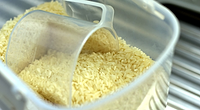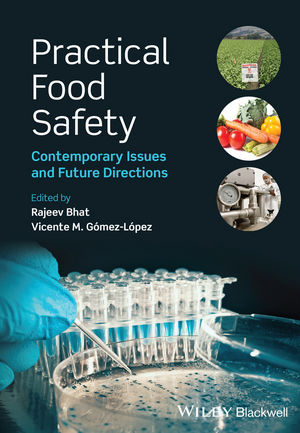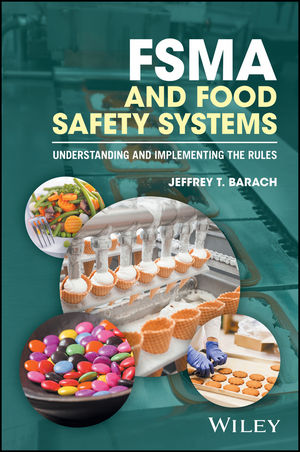Meeting New Maximum Residue Limits

Internationally, food safety organizations are struggling to meet a wide variety of new pesticide-monitoring regulations as food sources and markets become globally diverse. Governments and trade organizations are increasing the number of pesticides that must be screened for and lowering maximum residue limits (MRLs), leaving food producers scrambling to respond.
International regulations on MRLs of pesticides in food now cover hundreds of individual components—Japan’s MRL list has over 800 compounds—at levels down to parts per billion (ppb). Meeting the expanded requirements has forced food safety teams to address a variety of new technical and budgetary issues by turning to liquid chromatography/mass spectrometry (LC/MS) instruments to run multi-residue analytical methods.
More than 800 regulated pesticides can be analyzed by LC/MS methods; however, LC/MS multi-residue methods can be challenging. Issues can include the following:
• Reducing the matrix effect on method performance
• Meeting analytical figures of merit for new regulations and standards
• Increasing throughput to accommodate higher workloads
• Streamlining the method development, data collection and reporting workflow
Thermo Scientific instrumentation and software can help food safety professionals face such challenges and improve the productivity of LC/MS analyses in residue laboratories. Thermo Scientific TraceFinder software coupled with TSQ Series technology simplifies the food testing workflow and shortens method development time. For water and beverage testing, the Thermo Scientific EQuan MAX system is a complete LC/MS analysis platform that improves productivity by reducing sample preparation time from days to minutes. These integrated solutions are ideal for performing simultaneous targeted multi-residue screening assays that include both quantitation and confirmation of compounds.
Precise, Versatile and Robust Quantitation
Triple-stage quadrupole detection technology coupled with chromatography offers improved throughput, confidence and reduced cost-per-analysis, making it a powerful tool for food safety testing. This detector technology measures the mass of target molecules and their unique reaction ions for both quantitation and residue identity confirmation. The Thermo Scientific TSQ Series triple-stage quadrupole mass spectrometers are powerful, sensitive and robust instruments designed to meet the demanding requirements of modern food safety laboratories. The TSQ Series instruments share several features that provide higher sensitivity and lower detection limits, making them well-suited for regulated environments like food safety.
Simplified Workflow
TraceFinder™ software simplifies the analysis of residues in food, water and beverage samples. Its menu of preconfigured methods and report formats simplifies routine contaminant screening, helping laboratories meet increasingly stringent monitoring requirements and boost productivity.
To create a method for targeted screening and quantitation, users simply choose the test, build the sample list, choose the report options and submit the samples for analysis. Users access the built-in SRM library and choose the LC/MS conditions to create the desired method.
Reduced Matrix Effects
SRM is the primary technique used with a triple-stage quadrupole mass spectrometer for quantitative analysis. However, selection of a precursor ion at a normal unit (1 amu) resolution often suffers chemical noise interferences from endogenous biological and environmental matrices.
The TSQ Series LC-MS/MS instruments offer increased resolution using highly selective reaction monitoring (H-SRM). By removing isobaric chemical noise, H-SRM increases signal-to-noise, improving limits of quantitation and providing higher-confidence results. H-SRM reduces the possibility of false positives, even in heavy matrices, without sacrificing sensitivity.
Increased Productivity
Sample preparation is a bottleneck in many residue laboratories. It can typically take 24–48 hours to extract, prepare and pre-concentrate samples for LC/MS analysis. EQuan MAX™ performs online sample extraction and LC/MS analysis of water and beverage samples, saving the analyst days in terms of off-line sample preparation time.
Simultaneous Quantitation and Confirmation
The Thermo Scientific Quantitation-Enhanced Data-Dependent MS/MS (QED-MS/MS) scan function increases throughput by providing simultaneous quantitation and structural confirmation. The acquired QED-MS/MS data can be subsequently searched against a built-in library of well-known contaminants for further structural confirmation.
Conclusion
TraceFinder software, coupled with TSQ Series technology, enables users to quantitate and confirm residue contaminants in food and beverage samples either by direct injection or by online sample extraction with the EQuan MAX system.
www.thermoscientific.com/tracefinder
Looking for a reprint of this article?
From high-res PDFs to custom plaques, order your copy today!








